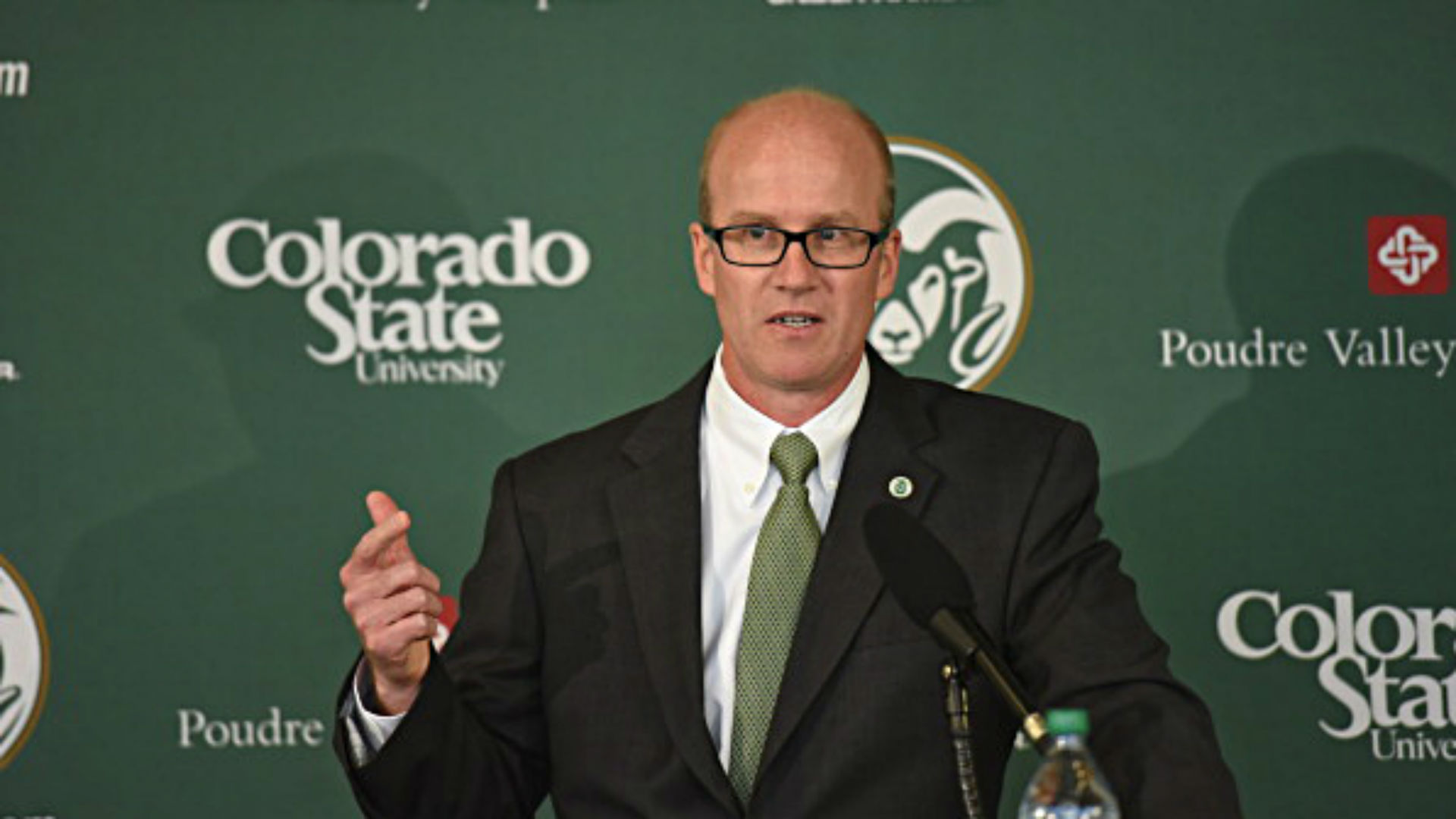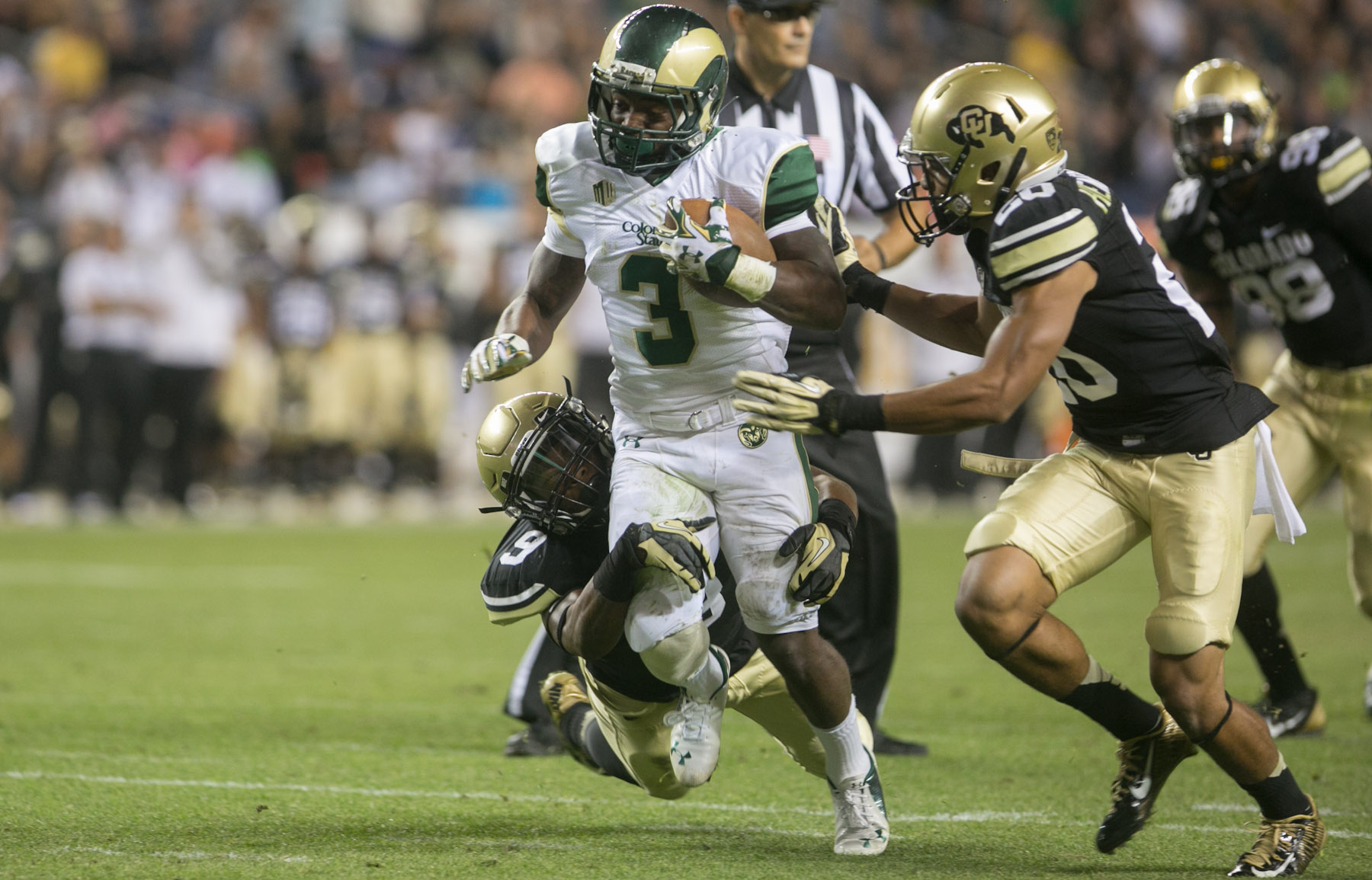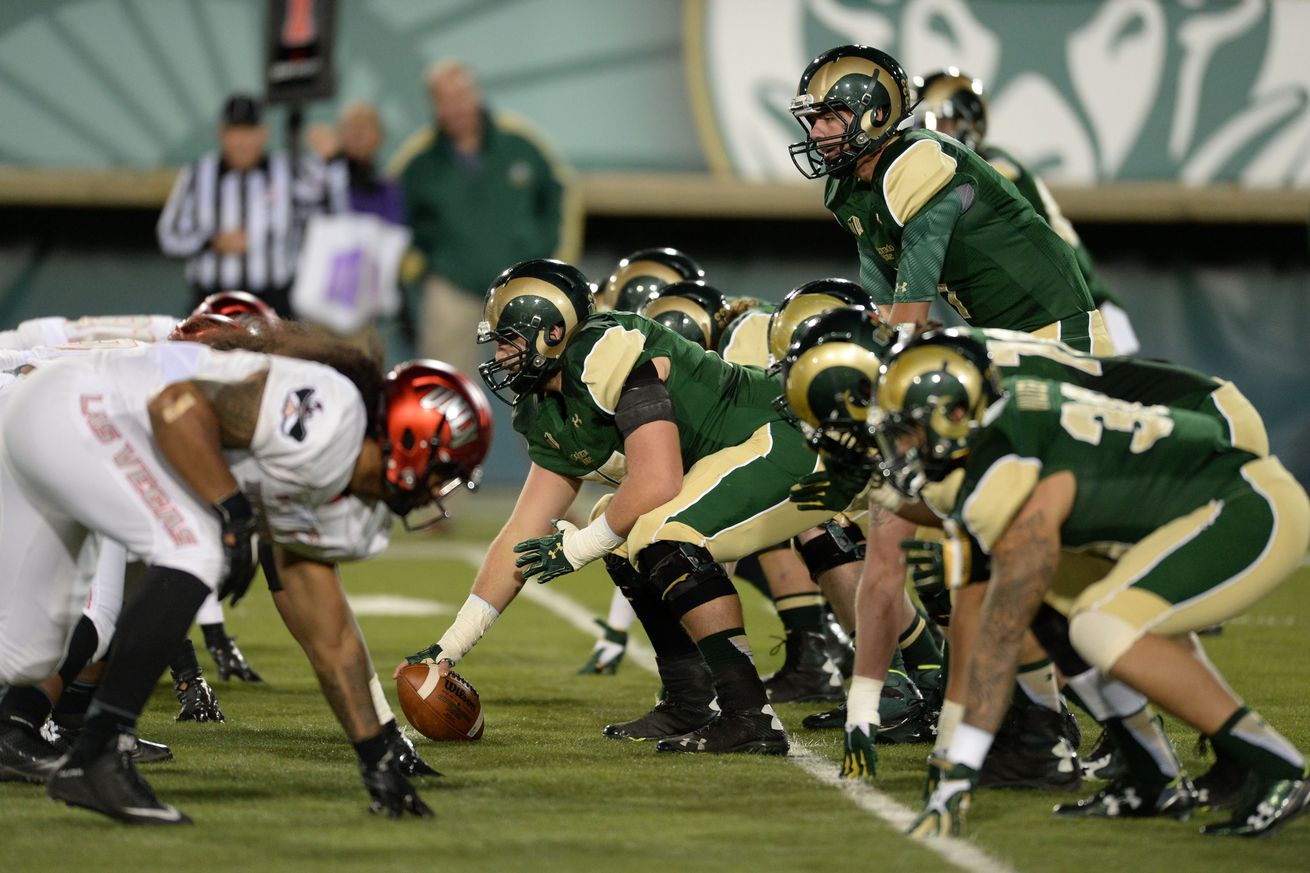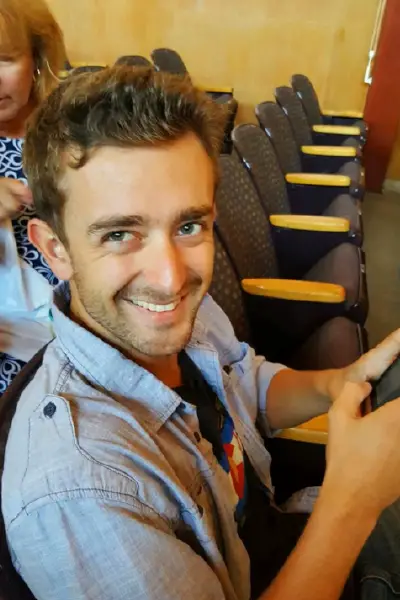Athletics Are Still Essential
According to Parker, college athletics remain a good investment in a time of tight budgets.
By Aaron Lynch, Front Range Community College
Last week, I wrote an article discussing whether academics or athletics were the key to building a prolific university, and since I sided hard with academics, it made me wonder: Why even have an athletics department in the first place?
It’s great that some students want to play sports, but shouldn’t they do that on their own time and their own dime?
Joe Parker is the Director of Athletics at Colorado State University, and his career has been as impressive as it is extensive; he’s worked in athletic programs like the University of Texas, Oklahoma and Michigan, and was even one of four on the committee responsible for renovating “The Big House” into how we know it today.
This week, I sat down with Mr. Parker to get specific about why athletics are still worth the price tag and what they can mean for the community.

“It just makes the whole experience more sticky; there’s more of a reason to come to Fort Collins,” Parker tells me of CSU’s stadium project. It’s late on a Thursday afternoon as the sun sets behind the snowy foothills. The stadium has been controversial, as CSU already had a functioning off-campus stadium (on the edge of town); however, the administration’s decision to proceed on the project without public approval made a statement about CSU’s long term dedication to its athletic department, and Parker thinks school spirit will benefit the whole community.
Fort Collins is already distinctive in its own rite; our nature and nightlife garner national attention, while tech companies like HP and Woodward Governor draw some of the most talented workers from around the country. FOCO is a healthy, wealthy and diverse city with a little something for everyone, and perhaps because of that, the CSU administration seems to have an eye on the future of the mini-tropolis.
“We can create what will be defined by many as the most unique college game-day experience that anyone has experienced,” Parker envisions. “Depending on kickoff, [one could] park in Old Town (downtown), grab lunch, take the [mass transit] to campus, take the game in, have a beer at the Ramskeller, go back to Old Town, visit with some friends and then get back in [their] car and go home.”
Parker sees the stadium as an opportunity to tie together some of the integral parts of the Fort Collins culture, and his department has even been working with our shopping malls’ developers to promote park-n-ride options, thereby further distributing game-day exposure across town (not to mention that’s a smooth way to mitigate traffic).
“And imagine, our alumni are bringing their children, and those kids are going to be formulating opinions about where they want to spend four or five years of their life as a college student.” He continues, “And if your whole life all you’ve ever known is coming to CSU and watching football in that stadium, it’s a built-in sales tool that gets even younger people engaged with the idea of being a CSU Ram.”

It’s no secret that donations from alumni can be critical to university financing; for the new stadium alone CSU has received over $50 million in individual private support, with over a thousand of those donations coming from first time donors.
“I don’t think there’s anything I’ve seen in higher education that comes close to intercollegiate athletics as it relates to really helping people engage with the university,” Parker muses. “And we don’t do that to solely drive support to athletics, we do it because it helps every other unit of campus.”
Athletics are one of the tools the school uses to generate interest from its alumni; the more interest they generate, the more money they raise for projects and campus upgrades.
CSU’s president, Tony Frank, likes to say, “We aspire to be excellent in all things we do.” Parker agrees and would add, “I think you can comfortably do both [academics and athletics]; intercollegiate athletics really isn’t any different than having the best Vet-Med program in the country.”
“Although our 16 varsity programs only serve 380 athletes, the experience it’s created is life transforming, you know? If you can balance academics and athletics at this level, you’re developing in a way some other students aren’t,” Parker says.
CSU athletes also average a better Graduation Success Rate (GSR) than non-athletes by a near eight percent differential, and that makes sense when you consider the support athletes get from their coaches as well as their desire to compete in their sport.
“Another thing that’s a piece of pride for us, or at least for me, is that intercollegiate athletics, really, is a unique way to provide access to education. A lot of our students are first generation students whose parents have never been on campus.” Parker smiles as he talks of first-gen student athletes coming back after 15 years and enrolling their children, “If you aggregate that across a 60-year window, think about the impact that that’s had on helping people understand and gain the experience of a college degree.”
Ladies and Gentlemen, I am convinced; athletics do have long term benefits for everyone when you consider how it all coincides to create an experience. When criticizing these programs, it’s important to remember that most schools are not in it for a profit, but are instead for the tangible benefits to the athletes, the surrounding community and eventually, the nation.

















